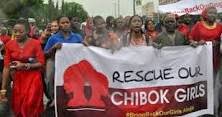
IVF: Matters Arising: A Critique Of Evans V. United Kingdom |Emaediong ofonime akpan

unannounced and few remain unchanged overtime. The development of techniques to
facilitate the fertilization of human eggs or ova is no exception. The medical
sector has not been let off the hook of the technological wave that has blown
across nearly all sectors of human lives. While IVF is now recognized as an
acceptable medical technique to combat the surging problems of infertility, it
is still being considered relatively novel.
It is pertinent to not that the innovation of IVF has not met with the
same response like other medical intervention like; vaccines and the like.
a broad range of technologies aimed at facilitating, preventing, or otherwise
intervening in the process of reproduction.
In this piece of legal opinion the focus is on the legal and ethical
issues associated with in-vitro fertilization in Nigeria. On 25th July 1978, Louise
Joy Brown was born in Great Britain, being the first successful birth through
the use of in-vitro-fertilisation. The IVF in its simplest form involves the
hormonal monitoring and stimulation of the woman producing ova, harvesting the
ova, mixing same with sperm in a petri dish containing a culture medium. It
involves a three day waiting period (approximately) for embryo development,
before the embryo is transferred back to the woman. IVF has come to challenge
traditional views and positions on abortion. This has been occasioned by the
right to destroy embryo with the consent of the couple. It the United Kingdom
the traditional stand against abortion has been threatened by the freedom of a
partner to withdraw from the procedure at any time and ordered the fertilised
eggs or preserved spermatozoa to be destroyed.
is unprecedented and it comes with attendant problems which the legal framework
ought to cater for. Legal disputes may include the determination of who has
parental responsibility over a child begotten from IVF. The persons who have
the natural rights have become expanded from the usual two (mother and father)
to; the sperm donor, the egg donor, the surrogate womb mother, and the couple
who raises the child. IVF also raises questions of rights and liabilities as
they apply to the fetus, donors, and adoptive parents, as well as the role of
physicians and parenthood organisations, researchers, corporations, and government
in ensuring that the practice of IVF is not performed without adherence to
strict rules of ethical guidelines.
scientific development has not been clearly established, and in fact regulation
of scientific advancement has not been welcomed by those active in progressive
areas of medical research. She cites Burger, who opined that the law does
govern the advancements of medical science.
This article is necessary to bring to the fore the challenges inherent
in the practice of IVF and innovative roles the law can play to cushion the
adverse effect of such challenges.
legal implications are disposal of surplus embryos created in vitro that prove
unnecessary or unsuitable for a couple’s reproductive requirements,
implantation of several embryos that results in high, multiple pregnancy, and
creation of the same result by natural conception following medically induced
super ovulation, and the option of so called ‘selective reduction’ to reduce
multiple pregnancy. Multiple pregnancy involves health care of mothers,
foetuses in utero, and newborn children, possibly born prematurely with low
birth weight and risk of associated complications.
consent of both members of an infertile couple, consent of gamete or embryo
donor, and the legal status of a resulting child. A husband’s consent to his
wife’s insemination by donor is usually required, in order that any legal
presumption of his fatherhood be maintained. His objection would render the
child not his legal responsibility, and he may disclaim paternity if the wife
is serving as a surrogate mother to another man’s child. Sperm or ovum donors
must consent for lawful donation, but recovery of sperm from unconscious and
recently deceased men raises concerns such as how one can prove that his
consent was obtained in his unconscious state or before his death. Legal questions
that are also unresolved in many countries arise when donation of a couple’s
cyro-preserved embryo is possible, but only one member of the couple consents.
of parental responsibility of a child begotten of IVF. This is adequately
demonstrated in the American case of the Calverts. Crispina and Mark Calvert
were unable to conceive a child due to the fact that Crispina had had
hysterectomy. Her ovaries, however, were intact and capable to produce valid
ova. Therefore, they drew up a contract with Anna Johnson who agreed to be a
surrogate mother and later relinquish the child to the Calverts. Calverts
agreed to compensate Johnson $10,000 in three installments part paid before and
part after the birth of the child. After successful in vitro fertilization and
transfer of the embryo to Johnson’s womb, Anna required full payment of the sum
threatening that otherwise she would keep the baby. Three successive courts
decided in favour of Calverts. The basis of the decision was different in
different courts: two courts relied directly on genetic relatedness of the
Calverts to the child and invoked the assumptions of other possible ways of
determination of parenthood. The third and final court based its decision
purely on the concept of ‘intent’ of the parties, that is, what was the intent
of them when they entered the contract?
reproductive technologies in defining kinship and gender. First, it
demonstrates that due to the new reproductive technologies, society is forced
to re-evaluate its assumptions about what is the basis of kinship and gender
relations. Second, they show that the ‘biogenetic’ basis, although perceived as
the basis, cannot be applied in the real situations. The procreative act,
marriage, donors of genetic material and the ones that engage in the nurturing
of the new creature (embryo and later the child) can all now be separated.
Prior to the new reproductive technologies, they all were supposed to be parts
of the same biologically grounded process. Since these roles can be delegated
now to different people, one cannot use the biological processes as the
determining factor to identify the kin persons. The intention of the court to
put more emphasis on the social seems to be logical since it still can identify
one person. While the biological facts have become confusing, the social ones
remain the same as before.`
spans beyond legal implications to, medical, societal and psychological
implications
facts
treatment for Assisted Conception at clinic In Bath July 2000. Sadly, preliminary
tests revealed that Evans had serious precancerous tumors in both her ovaries;
as soon as some eggs has been harvested for the purposes of IVF, her ovaries
were to be remove. It was during the same hour-long consultation in October
2000 that Evans and Johnston were informed both of the existence of the tumors
and of the policy regarding consent to IVF. Eleven eggs were harvested and six
embryo’s created and placed in storage, in November 2000, Evans underwent an
operation to remove her ovaries. The plan was for the implantation to take
place once Evan’s health permitted, following a recommended minimum period of
two years. The alternative and less certain procedure of freezing unfertilized
eggs was not available at that clinic at the time. Unfortunately, in May 2002
the relationship between Evans and Johnston broke down. In July, Johnston wrote
to the clinic withdrawing his consent to implantation
contract, with Natalie Evans as the offeror and Howard Johnston being the
offeree, there remains the question of appropriate remedy where the contract is
breached by one of the parties in this case Howard Johnston. The question that
is pertinent to ask is; whether the acceptance communicated by the offeree to
the offeror contributed to her decision to have her ovaries removed. While it
may be argued that the removal of her ovaries were inevitable, the acceptance
to be a part of the IVF procedure by her partner led her to carrying out the
procedure knowing it was her only chance to bear children. Granted that the
Human Fertilisation and Embryology Act 1990 provides that either partner may
withdraw his or her consent in writing at any time before implantation in the
woman’s uterus. However, a marriage of the provisions of the Article 16 of the
United Nations Declaration of Human Rights (1948) and Article 23 of the
International Covenant on Civil and Political Rights, would enable one to realize
that the right to marry, found a family and reproduce are inalienable rights.
It is not known to the writer at the time of writing this work whether there
exists a prototype of a pre-nuptial agreement for IVF procedures to protect
women like Natalie Evans. The object of the contract being the expected results
of the IVF procedure which would have seen that Natalie is not denied the right
to found a family.
deciding swing of the pendulum in the decision to withdraw consent. IVF comes
with a plethora of implications for inheritance laws, family law and adoption
law to mention but a few. The question remains as to what the response of the
law is in the face of these teeming challenges. It is largely unclear whether
there exists a demarcating line between one partner’s right to found a family
and the other partner’s right to withdraw from an IVF procedure. The law will
need to re-evaluate the traditional underpinnings of the ban on abortion.
Future research may examine with a view to charting a new course on the
modalities to be put in place for timeous regulation of IVF in Nigeria.
Bernholz and G N Herman, ‘Legal Implications of Human In Vitro Fertilization
for the Practicing Physician in North Carolina’ (1984) 6(1)Campbell Law
Review,p.44.
McCartan, ‘A Survey of the Legal, Ethical, and Public Policy Considerations of
In Vitro Fertilization’ (2012)2(3) Notre Dame Journal of Law, Ethics &
Public Policy, p.696.
Burger, ‘Reflections on Law and Experimental Medicine’, (1968) 15 UCLA Law
Review, p. 436, 440
B.M. Dickens and M.H. Fathalla Reproductive
Health and Human Rights. (New York: Oxford University Press. (2003).
case of R. V. Human Fertilization and Embryology Authority, exp. Blood (1997) 2
All ER 687 (Court of Appeal, England).
Sedlenieks, Klavs, ‘New Reproductive Technologies: Towards Assisted Gender
Relations.’ (1999) An Essay for MPhil Degree, Department of Social Anthropology,
University of Cambridge.

Akpan, Emaediong Ofonime is currently undergoing
postgraduate studies at the University of Uyo and majors in Consumer
Protection. She can be reached at akpanemaediongofonime@gmail.com
Photo Credit – www.fitpregnancy.com















